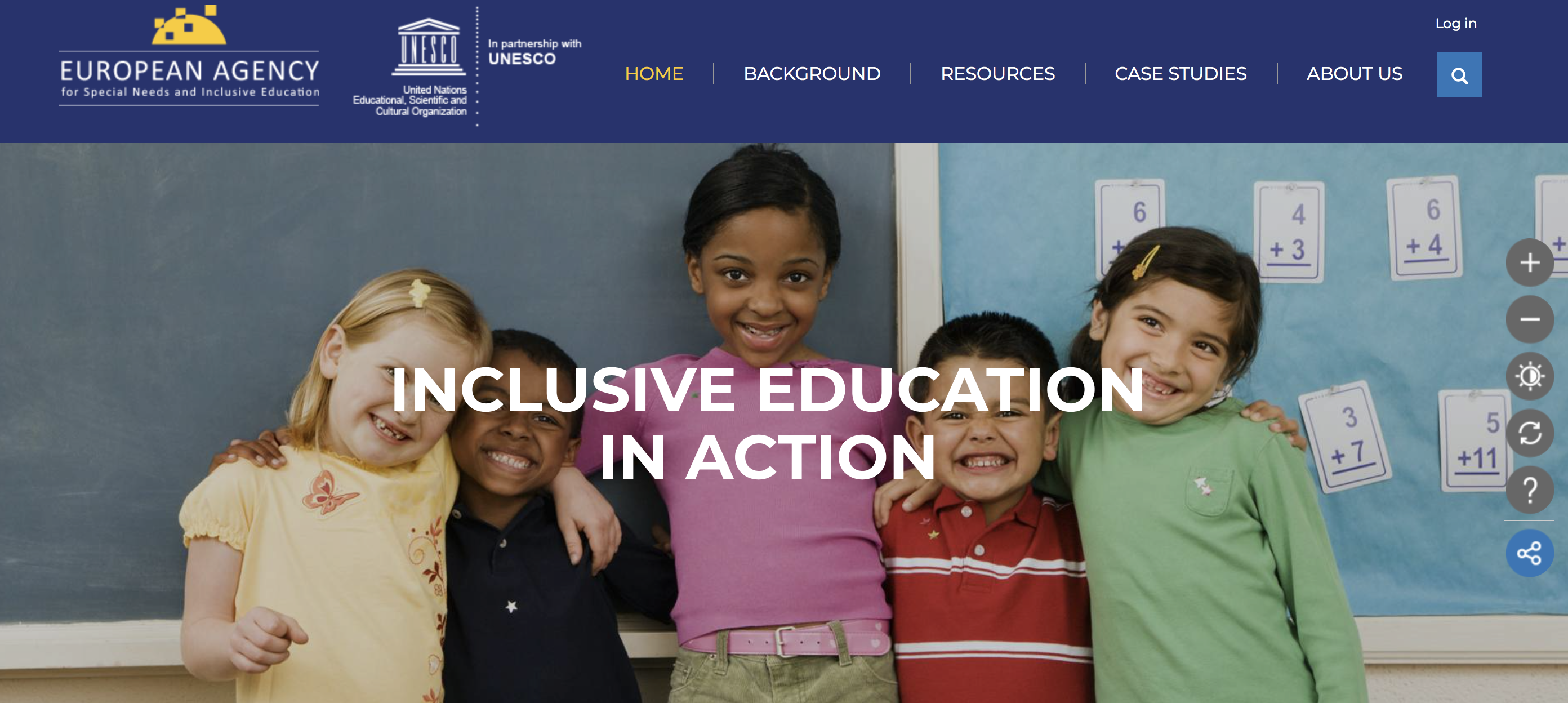The Inclusive Education in Action (IEA) website is a joint initiative of the Agency and UNESCO. Since 2009 it has provided a useful collection of resources and case studies for policy-makers, inclusive education practitioners and other stakeholders.
Case studies come from a wide range of sources around the world. They aim to provide information and examples of practice for policy-makers and other stakeholders, to help them to implement effective inclusive education. Anyone involved in policy development towards inclusive education is welcome to submit a case study for consideration. The open call for case studies provides details on how to submit a case study.
The most recent case study describes a counselling programme for learners in Slovenia, which aims to prevent their placement in a specialist institution. The case study outlines the key outcomes of the programme and its challenges and successes. Its successes include a faster response to learners’ needs, and higher levels of co-operation between learners’ families and the professionals involved in their education.
Another recent case study examines the Walkway School in Pakistan. The school aims to provide education to people who are vulnerable to exclusion in Pakistan, including women, girls and members of the LGBTQ+ community, and particularly those living in remote areas. It also focuses on efforts during the COVID-19 pandemic to ensure safe spaces for communities in rural areas, with clean drinking water and good quality education.
Both of these case studies were also included in the webinar on fostering stakeholder dialogue which was co-organised by the Agency and UNESCO in April 2022.
Alongside the case studies, the IEA website provides useful inclusive education resources, including reports, practical tools, guidelines and other publications from the Agency, UNESCO and other organisations.
Visit the IEA website for more information or to explore the case studies and resources.
